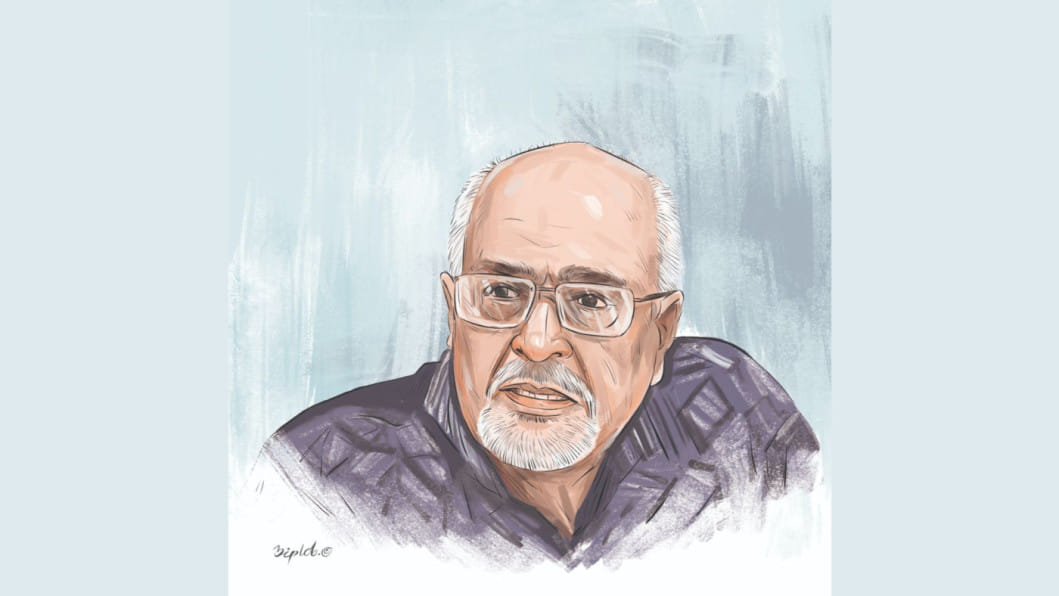Policy gaps hinder SDG progress: experts

Despite progress in corporate social responsibility (CSR) and green initiatives, systemic barriers, poor policy alignment, and a lack of effective public-private collaboration continue to hinder Bangladesh's achievement of Sustainable Development Goals (SDGs), experts said.
"Adopting a sustainable business model without creating a favourable business environment for the private sector would be contradictory," said Debapriya Bhattacharya, a distinguished fellow at the Centre for Policy Dialogue (CPD).
He made the remarks while summarising discussions among business leaders during a consultation on the "National SDG Report (NVR) 2025: Perspectives of Business Leaders," organised by the Citizen's Platform for Sustainable Development Goals (SDGs), Bangladesh, at the Bangladesh-China Friendship Exhibition Centre in the capital's Agargaon yesterday.
Bhattacharya emphasised that Bangladesh's investment climate must be improved, with greater support from government officials, to establish a sustainable business model.
He also stressed the importance of transparent monitoring platforms to assess advancements in sustainability and highlighted that ethical leadership is crucial for development.
Additionally, he called for institutionalised monitoring and evaluation at the policy level to ensure transparency.
Regarding CSR and policy implementation, Bhattacharya advocated for better organisation of CSR funding in Bangladesh.
He suggested tax incentives to promote corporate contributions but cautioned against tax evasion.
Bhattacharya also noted that policymakers often lack awareness of CSR and sustainable economics, calling for training.
He concluded by saying that effective public-private collaboration and strong leadership are essential for building a sustainable economy in Bangladesh.
Asif Ibrahim, vice-chairman of NewAge Group of Industries, said they began working on SDG-related initiatives in 2017 by raising awareness about the significant role of the private sector.
He stated that SDG financing cannot be solely managed by the government or international organisations and that the private sector must play an active role.
After the Rana Plaza collapse, reforms took place in Bangladesh's readymade garments sector, but mapping remained incomplete, he noted.
According to Ibrahim, sustainable business financing can happen in three ways: impact investments, cost-effective investments, and CSR initiatives.
He stressed that financial policies must be more accessible for entrepreneurs to support SDG implementation and that collaboration between stakeholders is essential for progress.
Md Fazlul Hoque, a former president of the Bangladesh Knitwear Manufacturers and Exporters Association, said Bangladesh leads globally in environmentally friendly garment factories, with around 250 green factories, including 90 that are platinum-rated.
However, he said this achievement lacks global recognition.
He emphasised that Bangladesh ensures world-class workplace safety and is among the top in decent, safe, and secure workplaces, yet international promotion remains weak.
"The key challenge is proper branding and recognition. Despite a sustainable production system, the Rana Plaza tragedy still affects the industry's image," he said.
He stressed the need for joint efforts from Bangladesh Bank, government policies, and private initiatives to enhance global visibility.
"Global partnership is essential for correctly representing Bangladesh's garment industry," he added.
Shamima Zaman, executive director of Global Compact Network Bangladesh, emphasised Bangladesh's need for global recognition in sustainability.
She highlighted Bangladesh's progress in CSR and sustainable business but stressed gaps in branding and implementation.
While many companies practice CSR, it remains on an ad-hoc basis, and public banks lag in CSR initiatives despite government incentives, she said.
She urged better reporting, stocktaking, and alignment with SDGs.
According to her, collaboration among the private sector, public institutions, and civil society is essential for effective CSR and long-term growth.
Kamran Tanvirur Rahman, president of the Metropolitan Chamber of Commerce and Industry, Dhaka, said that stimulus packages are not reaching their intended targets.
He noted that many of these packages are not designed for export-oriented sectors, which are crucial for economic growth.
Rahman stressed the importance of aligning policies with real-life situations, as without proper alignment, implementation becomes ineffective.
He highlighted the need for a clear roadmap for implementing policies related to SDGs and called for better coordination between the corporate sector and the government.
Rahman also underlined the need for a solid legal framework to facilitate meaningful changes, especially for businesses working in the social impact sector.
The session was moderated by Mustafizur Rahman, a distinguished fellow at the CPD, with contributions from Shihab Quader, director general (SDG Affairs), and Anowarul Huq, assistant resident representative at the United Nations Development Programme (UNDP), Bangladesh.

 For all latest news, follow The Daily Star's Google News channel.
For all latest news, follow The Daily Star's Google News channel. 



Comments